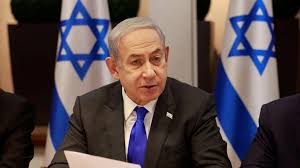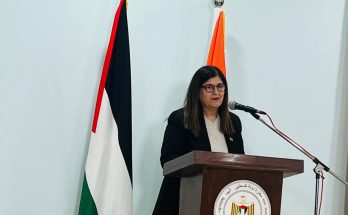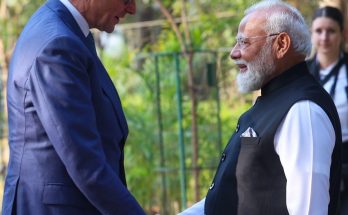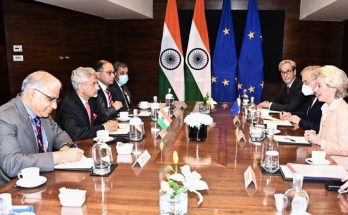
In a breakthrough for West Asia, Israel and Lebanon have agreed to a landmark ceasefire following months of escalating tensions fueled by cross-border attacks and regional rivalries. The ceasefire, which came into effect at midnight on November 27, was brokered with significant diplomatic efforts from the United States and France. Israeli Prime Minister Benjamin Netanyahu confirmed the agreement after approval from his Security Cabinet, Israel’s top decision-making body. The deal aims to halt hostilities between Israel and Hezbollah, the Iran-backed militant group operating in Lebanon. Netanyahu highlighted three key reasons for accepting the truce: isolating Hamas by neutralising Hezbollah, replenishing Israel’s military supplies, and focusing on countering the Iranian threat. “This ceasefire separates the fronts and leaves Hamas to face our pressure alone,” Netanyahu declared in a televised address, emphasising that the war with Hamas in Gaza would continue until all Israeli hostages are freed and Hamas is obliterated. The ceasefire conditions are comprehensive, including commitments from Hezbollah and other armed groups in Lebanon to cease offensive operations against Israel. In return, Israel will refrain from conducting military actions against Lebanese targets. Lebanon is required to ensure that its national army is the only armed force operating in southern Lebanon. The agreement also stipulates oversight of weapons production in Lebanese territories and the dismantling of unauthorised military infrastructure. Israeli forces are expected to withdraw from areas south of the Blue Line within 60 days, under the supervision of a bilateral committee and the United Nations Interim Force in Lebanon (UNIFIL).
India welcomed the development as a positive step toward de-escalation in the volatile region. In a statement issued from New Delhi, India called for restraint and dialogue, expressing hope that the ceasefire would pave the way for long-term stability. “We have always advocated for peace and diplomacy, and we believe this agreement can contribute to broader regional stability,” the statement read. The ceasefire has left Hamas, another Iran-backed militant group, isolated in Gaza. While Hezbollah had initially vowed to support Hamas in its war against Israel, the Lebanon deal effectively removes Hezbollah from the equation. Israeli forces have signalled that they will now intensify operations in Gaza, where the humanitarian crisis continues to worsen. Hamas, meanwhile, has expressed willingness for a ceasefire deal but accused Israel of delaying negotiations. The agreement also addresses broader concerns about the proliferation of weapons in Lebanon, requiring the Lebanese government to take stringent measures against unauthorized production and supply of arms. Observers believe the pact could help Lebanon stabilize its domestic security while preventing further escalation with Israel. While the ceasefire marks a significant diplomatic victory, Netanyahu cautioned that Israel would respond forcefully to any violations. “If Hezbollah breaks the agreement, we will strike back without hesitation,” he warned. For now, the ceasefire offers a rare glimmer of hope in a region long plagued by conflict.
Author Profile
- India Writes Network (www.indiawrites.org) is an emerging think tank and a media-publishing company focused on international affairs & the India Story. Centre for Global India Insights is the research arm of India Writes Network. To subscribe to India and the World, write to editor@indiawrites.org. A venture of TGII Media Private Limited, a leading media, publishing and consultancy company, IWN has carved a niche for balanced and exhaustive reporting and analysis of international affairs. Eminent personalities, politicians, diplomats, authors, strategy gurus and news-makers have contributed to India Writes Network, as also “India and the World,” a magazine focused on global affairs.
Latest entries
 DiplomacyJanuary 5, 2026India walks diplomatic tightrope over US operation in Venezuela
DiplomacyJanuary 5, 2026India walks diplomatic tightrope over US operation in Venezuela India and the WorldNovember 26, 2025G20@20: Africa’s Moment – The Once and Future World Order
India and the WorldNovember 26, 2025G20@20: Africa’s Moment – The Once and Future World Order DiplomacyOctober 4, 2025UNGA Resolution 2758 Must Not Be Distorted, One-China Principle Brooks No Challenge
DiplomacyOctober 4, 2025UNGA Resolution 2758 Must Not Be Distorted, One-China Principle Brooks No Challenge India and the WorldJuly 26, 2025MPs, diplomats laud Operation Sindoor, call for national unity to combat Pakistan-sponsored terror
India and the WorldJuly 26, 2025MPs, diplomats laud Operation Sindoor, call for national unity to combat Pakistan-sponsored terror







